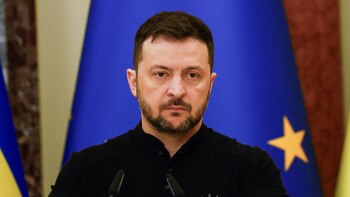
Some former FARC combatants demanded before the JEP that the State recognize what they consider crimes committed, during the conflict, against guerrillas by the military forces and official security agencies. This dual status as perpetrators and victims attributed to themselves, was condemned by the Minister of Defense, Diego Molano, who described the request as “the kill of impudence”.
The request of the former FARC combatants was made by Victoria Sandino, Joaquín Gómez and Benko Biohó, leaders of the guerrilla group prior to their surrender of weapons, who submitted to the JEP a report entitled: 'War crimes and human rights violations committed by the military forces and state security agencies '.
Hours later, Funvides, a foundation that works for the protection of the rights of members of the security forces victims of the conflict in Colombia, also submitted a report to the JEP requesting that a macro case be opened that recognizes war crimes committed against the security forces and left more than 400,000 people affected.
According to Minister Molano, among those crimes committed is the installation of anti-personnel mines, condemned by International Humanitarian Law that left more than 6,000 soldiers with permanent injuries, as detailed in the document given to the JEP Walking Towards Peace: “Truth and Pain”.
The report describes the use of these explosives as a systematic practice left by 12,136 Colombians, between the Public Forces and civilians, “who have suffered the horror of an invisible enemy of anti-personnel mines and improvised explosive devices, used as a method of war,” said the Minister of Defense.
Following the presentation of this report, which seeks that some members of the Army (considered another armed actor in the conflict) also be recognized as victims for multiple acts that the FARC would have committed during the war and that they be included in a macro-case; Minister Molano referred to the report and statements delivered by the appearing.
“That is the kill of impudence. The perpetrators claiming to be victims, when what they have to do is recognize their responsibilities for the more than 9 million victims in Colombia; and in the case of the Public Force 403,000 for practices they used against the institutions,” the minister stated.
Minister Molano assured that the Peace Agreement that allowed the return to civilian life of more than 13,000 guerrillas “focused on the victims, not the perpetrators. Now do the perpetrators want to play victims? No! The country must demand justice, truth and reparation for the victims, not for the perpetrators,” he said.
Regarding the report, he said that those appearing before the JEP should remember that in the midst of the conflict they used unconventional weapons that also, such as mines, included nuts, screws, glass and even fecal material, to aggravate the wounds and affect the life and integrity of the soldiers who fell in those camps.
With the report submitted and eight others previously submitted to the special court, the Government seeks to participate in the public hearings of the JEP, to recommend the opening of a macro-case recognizing these crimes. These are practices of great relevance in the conflict involving people and territories.
“It cannot be that the reflectors are heading towards the security forces and not the real perpetrators. In addition, while illegal armed groups undermine to take and destroy lives, sowing terror, it is our military, soldiers of the Homeland, who today, demine to protect life and restore hope,” the Minister stressed.
The ex-combatants, for their part, maintain that while they have made progress in recognizing the crimes of the other macro-cases, at least five that include them as the main determinators, the State and its organizations remain unaddressed, although the JEP is advancing in the case of illegitimate deaths presented as casualties in combat ( false positives) and the victimization of members of the Patriotic Union.
KEEP READING:
Últimas Noticias
Debanhi Escobar: they secured the motel where she was found lifeless in a cistern
Members of the Specialized Prosecutor's Office in Nuevo León secured the Nueva Castilla Motel as part of the investigations into the case

The oldest person in the world died at the age of 119
Kane Tanaka lived in Japan. She was born six months earlier than George Orwell, the same year that the Wright brothers first flew, and Marie Curie became the first woman to win a Nobel Prize

Macabre find in CDMX: they left a body bagged and tied in a taxi
The body was left in the back seats of the car. It was covered with black bags and tied with industrial tape
The eagles of America will face Manchester City in a duel of legends. Here are the details
The top Mexican football champion will play a match with Pep Guardiola's squad in the Lone Star Cup

Why is it good to bring dogs out to know the world when they are puppies
A so-called protection against the spread of diseases threatens the integral development of dogs




